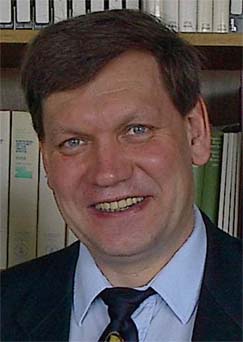Research Shows Children Born to Younger Mothers Live Longer
Greetings,
Recently PensionCalculator.org published a story about our new peer-reviewed article:
Biodemography of exceptional longevity:
Early-life and mid-life predictors of human longevity.
Biodemography and Social Biology, 2012, 58(1):14-39
DOI: 10.1080/19485565.2012.666121.
http://www.ncbi.nlm.nih.gov/pmc/articles/PMC3354762/
Full text of this story is published here:
www.pensioncalculator.org/24091/news/research-shows-children-born-to-younger-mothers-live-longer/
Here are some excerpts:
-----------------------------------------------------------------
Research Shows Children Born to Younger Mothers Live Longer
28.3.2013, A. Velasco
Researchers have found significant data supporting the “maternal age effect,” or the fact that the age at which a mother gives birth has an impact on their children’s longevity.
Dr Leonid Gavrilov, co-author of the study, told PensionCalculator.org: “Our study found that persons born to young mothers (aged less than 25 years) had significantly higher chances of living to 100, compared to their siblings born to older mothers.”
80 percent higher chance of living to 100
Because the research was conducted using a “within-family analysis,” or comparing the lifespans of children born to the same mother, Dr Gavrilov was confident in saying that the “maternal age effect is real, and is not related to differences between families.”
The scientist, who is the Principal Investigator of the NIH research project at NORC at the University of Chicago, went on to explain that “even at age 75 it still matters what was the mother’s age when a person was born: those born to young mothers have about 80% higher chances to live to 100.”
The team of researchers had to comb through thousands of family histories in order to find a few hundred that were reliable and viable for analysis. “Therefore we consider the results of this study as the beginning of a subsequent large-scale research effort with the promise of potentially breathtaking findings in the future,” said Dr Gavrilov.
Effects on our lives
Researchers say that probing into factors go into making one naturally long human life has the potential for lengthening all human life.
“People with exceptional longevity may represent particularly interesting outcomes of successful natural experiments on delaying human aging, and preventing age-related diseases,” said Dr Gavrilov. “Therefore, studies on centenarians could become a goldmine for unravelling the secrets of human longevity” by studying the “unintended natural experiments” going on in the bodies of the exceptionally long-lived.
-------------------------------------------
Recently PensionCalculator.org published a story about our new peer-reviewed article:
Biodemography of exceptional longevity:
Early-life and mid-life predictors of human longevity.
Biodemography and Social Biology, 2012, 58(1):14-39
DOI: 10.1080/19485565.2012.666121.
http://www.ncbi.nlm.nih.gov/pmc/articles/PMC3354762/
Full text of this story is published here:
www.pensioncalculator.org/24091/news/research-shows-children-born-to-younger-mothers-live-longer/
Here are some excerpts:
-----------------------------------------------------------------
Research Shows Children Born to Younger Mothers Live Longer
28.3.2013, A. Velasco
Researchers have found significant data supporting the “maternal age effect,” or the fact that the age at which a mother gives birth has an impact on their children’s longevity.
Dr Leonid Gavrilov, co-author of the study, told PensionCalculator.org: “Our study found that persons born to young mothers (aged less than 25 years) had significantly higher chances of living to 100, compared to their siblings born to older mothers.”
80 percent higher chance of living to 100
Because the research was conducted using a “within-family analysis,” or comparing the lifespans of children born to the same mother, Dr Gavrilov was confident in saying that the “maternal age effect is real, and is not related to differences between families.”
The scientist, who is the Principal Investigator of the NIH research project at NORC at the University of Chicago, went on to explain that “even at age 75 it still matters what was the mother’s age when a person was born: those born to young mothers have about 80% higher chances to live to 100.”
The team of researchers had to comb through thousands of family histories in order to find a few hundred that were reliable and viable for analysis. “Therefore we consider the results of this study as the beginning of a subsequent large-scale research effort with the promise of potentially breathtaking findings in the future,” said Dr Gavrilov.
Effects on our lives
Researchers say that probing into factors go into making one naturally long human life has the potential for lengthening all human life.
“People with exceptional longevity may represent particularly interesting outcomes of successful natural experiments on delaying human aging, and preventing age-related diseases,” said Dr Gavrilov. “Therefore, studies on centenarians could become a goldmine for unravelling the secrets of human longevity” by studying the “unintended natural experiments” going on in the bodies of the exceptionally long-lived.
-------------------------------------------


